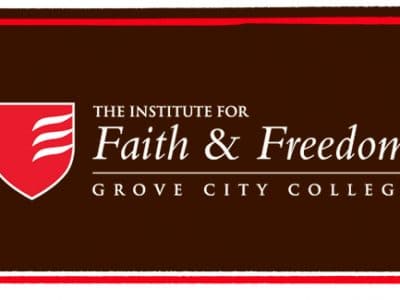“A uniquely American solution to covering the uninsured may, at long last, be within reach,”said Karen Ignagni, president of the insurance company association America’s Health Insurance Plans (AHIP), last April. When Ignagni addressed the matter again last week, she sent up a flare signaling a larger crisis in America—a crisis of American identity.
A uniquely American solution to healthcare requires political consensus as to how we define America. The leading political view of America today is that of a “progressive” America—government intervening in the ever-evolving needs of society unfettered by America’s founding documents. Ignagni sided with progressive America last week and we should be concerned about her motives.
Would a uniquely American solution to covering the uninsured include legislation allowing new forms of private insurance market competition, enhanced access to insurance products across state lines, tort reform, and more incentive for users to make informed healthcare purchase decisions’ AHIP calls for some of these things, but Ignagni pragmatically called for more government coercion as well—a solution to economic problems preferred by Americans since 1942.
I don’t support Ignagni’s call for coercion, but I understand why she did it. The Senate Finance Committee plan initiated by Sen. Max Baucus requires companies to insure the ill without stiff penalties for those who choose not to purchase health insurance. AHIP fears that the Baucus plan will mandate higher costs without creating a large enough stream of revenue from healthy persons to cover those costs. Ignagni and AHIP, therefore, have come up with the uniquely American solution of forcing Americans to buy health insurance.
How did AHIP get painted into this corner? The U.S. Supreme Court began its work in earnest in 1942 with a trampling of the Commerce Clause in Wickard v. Filburn. Seeking to support increased prices for agricultural products, Congress passed the Agricultural Adjustment Act of 1938. In 1941, Ohio farmer Roscoe Filburn was fined $117.11 for harvesting a few more bushels of wheat than his government-regulated allotment and using them for personal consumption.
Believing that the U.S. Constitution limits the federal government in regulating interstate commerce as stated in Article I, Section 8, Clause 3, Filburn challenged the feds and lost at the Supreme Court, which issued a twisted decision stating that Filburn’s wheat production and personal usage was a matter of interstate commerce. The Founders’ purpose in giving Congress authority to regulate interstate commerce was to ensure open trade among states, not to regulate economic producers. Wickard v. Filburn opened the floodgates for federal intervention in American economic life causing market distortions in competition, demand, supply, and pricing ever since.
This is “Trick or Treat” courtesy of the progressives.
Trick: Toss out the Constitution and the Commerce Clause in favor of continuous legal experimentation in American markets.
Treat: Watch Americans convulse dealing with progressive court decisions and legislation thrust upon them.
I think Ignagni and AHIP called for more federal intervention motivated by a desire to survive government meddling. This is a unique American solution because it’s not American.




